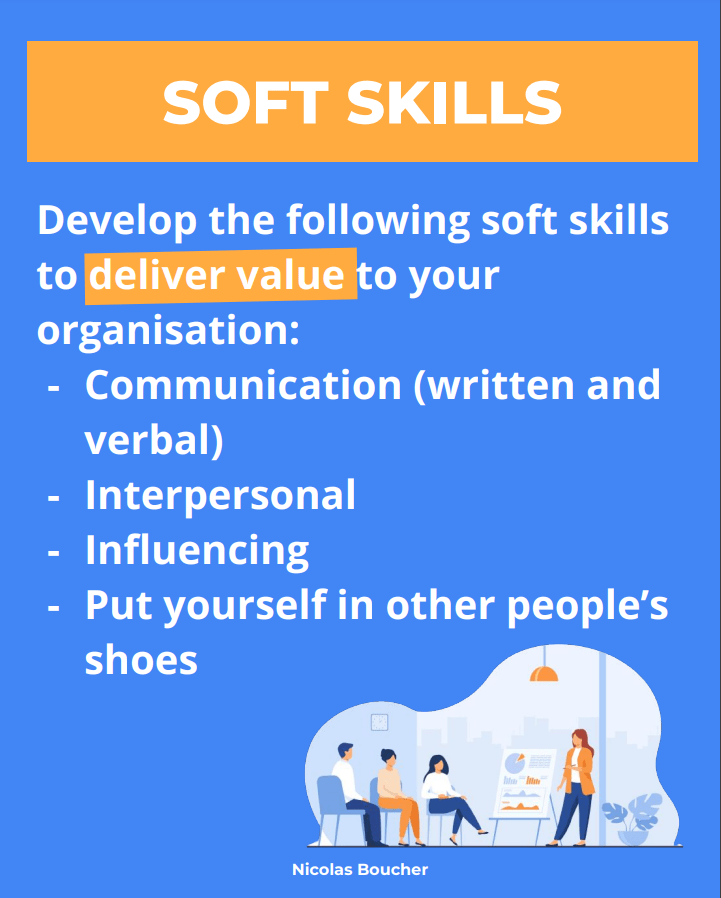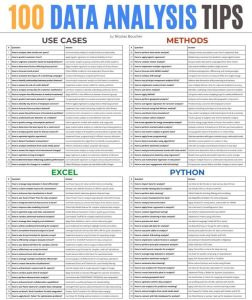Jobs in the financial industry may be quite profitable, which adds to the explanation of why they are so in demand. Of course, getting a job in the banking industry is difficult—the admission requirements might be as high as the pay. Many professionals have postgraduate degrees in business, math, economics, or statistics, and the majority of occupations demand at least a four-year degree. Furthermore, it is essential to follow career advice to stay on the right path.
However, it goes without saying that more than just getting good marks is necessary to have a successful career in Finance. Therefore, can you remember what made you decide to pursue this job path, whether you’re just starting out or a seasoned executive?
Accounting and financial professionals must exhibit a variety of talents in today’s quickly changing workplace, including accounting skills, excellent soft skills, razor-sharp analytical ability, and a solid grasp of industry-standard software.
What Does Finance Involve?
The field of Finance focuses on managing money and how it is obtained and spent by a person, business, or government organization. This area may cover budgeting, borrowing, lending, and investing. Important facets of the financial industry include investment banking, risk assessment, financial engineering, and stockbroking.
Those who work in this sector may examine these markets and the way that money moves through the economy. The term “finance” may also refer to the entire system of financial markets that control the movement of money.
Pros and Cons of Working in Finance
Here are the advantages and disadvantages of working as a Finance professional.
Pros of A Finance Career
- Excellent income and rewards – At all levels of the sector, there is potential for higher-than-average pay, along with a good career path, excellent perks, and bonuses. City-based businesses frequently provide wellness perks to hard-working staff, such as free gym membership, access to nutritious food, and healthcare.
- Job security – Due to its high demand and ongoing growth, this field of work offers a steady career. Therefore, there are a variety of jobs available. The Bureau of Labor Statistics (BLS) projects that this industry will grow by 5% during the following ten years. Your depth of specific expertise increases with time, elevating your value as an employee. As a result, a career in Finance might be described as secure.
- Variety – There will never be two identical days. You’ll always be active and pick up new skills due to the industry’s quick speed and unpredictability. There won’t be time for clock-watching because the office is likely to be buzzing with excitement.
- Career development – There are many prospects for growth and promotion in a career in Finance. There are many possibilities for you to grow in your job, and that too fast, after you’ve successfully entered the market. Top-tier roles are usually easy to fill. Given that this professional route does not confine you to a particular region, you might also investigate chances abroad. Moreover, you might pursue employment with businesses like the World Bank. In addition to this, you can open your own business.
- Job satisfaction – Finance professionals have among the greatest levels of work satisfaction because of their extraordinary salaries, job stability, and possibilities for professional development.
Cons of A Finance Career
- Long hours – Financial professionals often put in more than 40 hours each week, including weekends. Working between 50 and 70 hours a week is also very typical. For investment bankers, the range is 100. Therefore, there is a lot of pressure to persevere and achieve your goals in your early years. Consequently, maintaining a balance between work and life becomes challenging. Additionally, this occupation severely impacts your personal life because it is difficult to find time for your friends, family, and yourself.
- Relatively stressful – Challenges and stress are both present in the financial services industry. The workload changes significantly since many vocations are seasonal. Additionally, the clients, stocks, and quotas that drive a career in this sector change regularly. Such adjustments demand a lot of mental fortitude to handle. Many people succumb to the pressure, which puts their jobs in danger. Aside from this, a lot of outside variables affect your career here. Political changes, interest rates, and worldwide pandemics all play a huge effect, to use the stock market as an example.
- Tough and ongoing education – Even while the employment market is diverse and poised to grow, not everyone should pursue the necessary education to enter it. Finance is regarded as a challenging major on a global scale. Obtaining a license or the necessary credentials requires a significant amount of time and effort. Additionally, the examinations are really difficult. Complex mathematical formulas and financial jargon may be very intimidating. Furthermore, once you have a degree, your education doesn’t end. You must continuously refresh yourself by enrolling in appropriate courses if you want to keep up with the ever-changing industry.
Top 10 Career Advice for Finance Professionals
Here are my top ten career advice in Finance.
Ground Career Advice – Build A Strong Foundation in Finance and Accounting Principles
Having a strong foundation in finance and accounting principles is essential for success in any finance career. Make sure you have a good understanding of financial statements, budgeting, financial analysis, and other key concepts.
Network and Build Relationships
Building relationships with other finance professionals, both within and outside your organization, can be extremely beneficial for your career. Networking can help you stay up to date on industry trends, find new job opportunities, and gain valuable insights and advice from others in the field.
Another Career Advice – Stay Current
The world of Finance is constantly changing, so it’s important to stay current on industry developments and trends. Consider taking continuing education courses or earning additional certifications to keep your skills and knowledge up to date.
Be Detail-Oriented and Analytical
Finance professionals need to be detail-oriented and analytical in order to be successful. Pay close attention to the details of your work and use your analytical skills to make informed decisions.
Significant Career Advice – Develop Strong Communication Skills
In Finance, it’s important to be able to communicate complex financial concepts and information in a clear and concise manner. Developing strong communication skills will help you effectively present financial information to both internal and external stakeholders.
Take on Additional Responsibilities
Showing a willingness to take on additional responsibilities and projects can help you stand out and advance your career. Look for opportunities to volunteer for new projects or take on additional duties, even if they are outside your comfort zone.
Important Career Advice – Be Proactive
Don’t wait for opportunities to come to you – be proactive in seeking out new challenges and opportunities for growth. This might involve seeking out additional training or education, networking with industry professionals, or taking on new responsibilities at work.
Specialize in A Particular Area of Finance
There are many different areas within Finance, such as investment banking, corporate Finance, and financial planning. Consider specializing in a particular area of Finance that interests you and aligns with your strengths and career goals.
Be Ethical
Ethics are of the utmost importance in the finance industry. Make sure you always follow ethical guidelines and principles and avoid any actions that could be perceived as unethical or dishonest.
Seek Out Mentors and Role Models
Having a mentor or role model can be incredibly helpful as you navigate your finance career. Look for someone who is experienced in the field and can provide guidance and advice on your career path.
The Bottom Line – Follow My Career Advice to Reach Success
Financial careers frequently include high entrance barriers, intense competition for qualified candidates, and significant levels of stress. Nevertheless, these positions have many benefits, such as a demanding workplace, connection with smart and highly driven coworkers, chances for growth, and high income. Although many people enter the financial industry for monetary possibilities, those who succeed tend to have a clear love for what they do. Above all, follow my advice to ensure you are on the right path!
Finally, if you are interested in pursuing a career in Finance, you can take my course to ensure you have all you need to become a Finance Professional.















